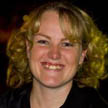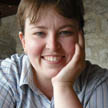I’m a Scientist is like school science lessons meet the X Factor! School students choose which scientist gets a prize of $1000 to communicate their work.
Scientists and students talk on this website. They both break down barriers, have fun and learn. But only the students get to vote.
This zone is the Disease Zone. It has scientists studying the causes and processes of illness . Who gets the prize? YOU decide!









My job as a visiting professor and an international volunteer in Nepal is not hard.
There are two other Nepali faculties, thus my teaching load is not heavy.The PBL(Problem Based Learning) class takes 7 hours a week and manageable.
0
My job can be hard – there are long hours, especially weeks where I am on call and may have to start work in the middle of the night. And sometime you do need to work under quite a lot of stress when there is an emergency, or lots of patients.
But when you see that the work you do has saved someones life, or helped a medical team treat someone it makes it all seem worthwhile. My team are also very good, we get along well, and like to have fun at work (when its not too busy) – pathology is known as the place to go to have a good laugh!
0
‘Hard’ can mean many things. For instance, it could mean ‘do I work hard?’ Then the answer would be that yes, I do work hard. I often work long hours in the lab or at home, and I think about science a lot on my own time. My wife often forces me to take time off, ‘brain breaks’ as she calls them.
But ‘hard’ could also mean ‘is my job hard for me to make myself do, as in would I rather be doing something else’? In that case, the answer would be a resounding *no*. I can’t think of anything else that I would rather spend my life doing! I get to get up every day and think about things that no one else has ever thought of, and that makes my job incredibly fulfilling. I also get to travel all over the world, talking to smart people about difficult questions, and I have met so many awesome people doing this job that it sometimes feels like I’m somehow cheating, that it shouldn’t be this much fun.
0
Some days my job is very hard. I work closely with patients, and animals, that have cancer, which can be very sad, and emotionally draining. If we have a big assignment due, like a conference presentation or paper for a journal, that can mean lots of late nights trying to get it finished in time. If we have a trial running, you are there 7 days a week checking up on animals. Sometimes an experiment won’t work for a long time, and nothing you try fixes the problem, which can be very frustrating, and makes the job harder.
That’s why I play roller derby: It helps me get rid of stress!
Even though it is sometimes hard, most days are quite easy, with many of my experiments the same as following a recipe: you put this much of Chemical A and a drop of Chemical B into a tube, put it in Machine C, and it gives you a bunch of numbers or squiggly lines that you have to figure out the meaning to. Well, it usually has a few more steps than that, but it really is as easy as making a cake, once you know how. But everything going right in the lab can be really boring! Sometimes I enjoy my job more when things don’t work quite right, because it’s like a puzzle, having to figure out which bit isn’t fitting, and thinking up cool new ways to fix it.
On good days, patients tell you they feel better, you get to travel to interesting places to present your work, or you finally figure out why your experiment wasn’t working, and get a bunch of squiggly lines that make you go “WOOHOO!”
0
mmmmm…..hard question.
With every job, you learn as you go. So I studied 3 years of biomedical sciences before I was ‘released’ in a lab to do my Masters of Science, and even then, you have a supervisor and other students who help and guide you at every step.
The thing about science what makes people good, is if they can think outside the box. So anyone can do the experiments I do, it’s just like cooking according to a recipe. But you need to be able to combine known information (eating fatty foods make you fat + fat people have more chance of a heart attack), and come up with a possible explanation that you can test (fatty foods are bad for your heart: test this by looking at the hearts from people who are fat).
I have found that the more I know, the more I realize I don’t know. I wish I could hook up an external hard drive to my brain and store all the information.
0